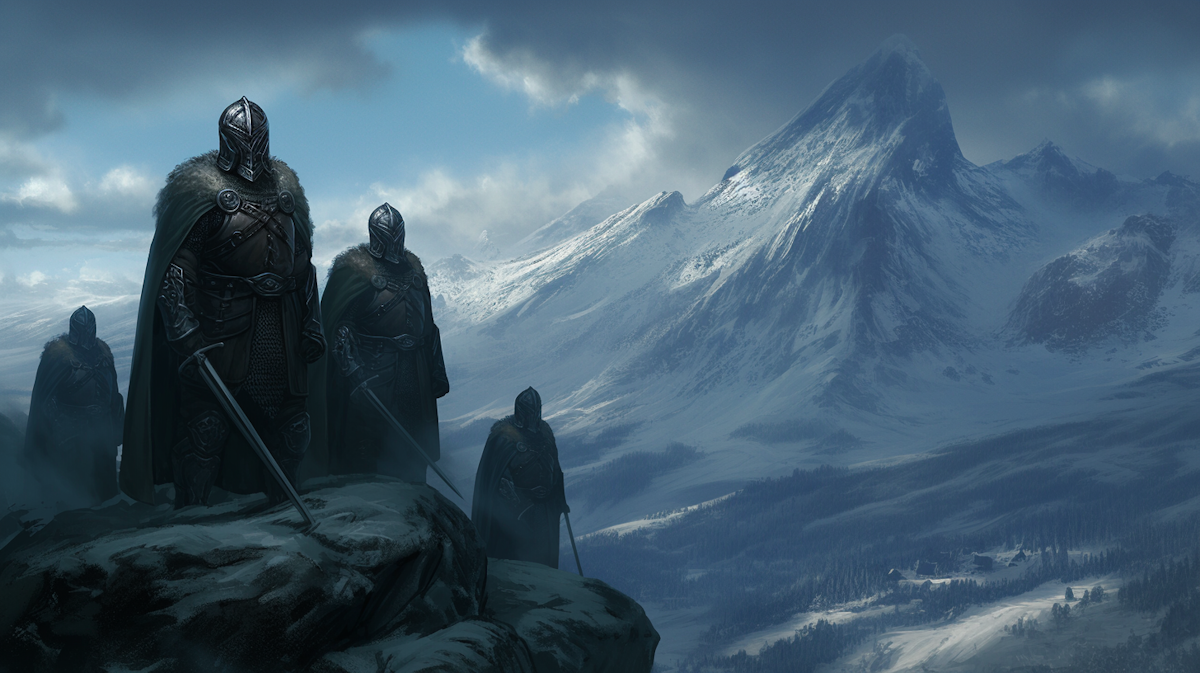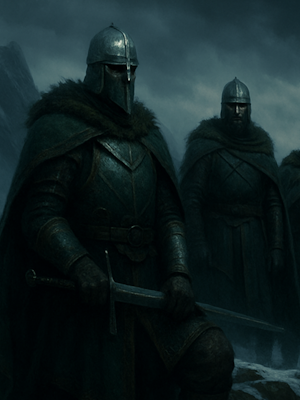The Warguard
Overview
The Warguard is a mercenary brotherhood born from the disillusionment of former Kyrusian officers, men and women who once bled for Tsars and generals, only to watch the nation rot from within. Founded in protest against the corruption festering in the Tsardom's high command, the Warguard carved its own path, answering only to its internal code of conduct. It is not a guild that sells its blades lightly, nor blindly follows the coin. Their services are expensive, not due to greed, but because each contract must first be judged worthy of their steel.
To many, the Warguard are a paradox: brutal but just, honor-bound but unpredictable, loyal but not obedient. They serve no ideology beyond their own, and though they accept contracts, they are known to walk away, or even turn, if the cause proves false or their code is betrayed.
Origins
Founded nearly three decades ago by a disgraced General Seran Vekhov, the Warguard emerged after the brutal Winter Reprisals, where Vekhov was ordered to execute hundreds of civilians accused of treason without trial. Refusing the order, he and a cadre of loyal veterans deserted the army and vanished. Months later, nobles began hiring an elite, nameless unit that operated with stunning discipline and military precision. This was the Warguard, reborn from Vekhov’s rebellion.
Though Vekhov passed years ago, his code survives: “No war is righteous. Only the blade that chooses when to strike.”
Philosophy & Code
The Warguard follow a strict internal code rooted in discipline, and moral clarity. They believe honor is greater than obedience, and that no soldier should follow an order blindly. True strength lies in the courage to question and choose rightly. To them, justice is not bound to the law, for laws can be corrupted, where as justice must be chosen, defended, and if needed, imposed.
They refuse to harm innocents, holding civilian lives as sacred even in the chaos of war, and consider the deliberate endangerment of the helpless a crime.
Corruption, wherever it festers, be it in noble halls or among generals, is seen as a greater enemy than any foreign foe, and they are known to execute such figures even mid-contract if their continued existence would shame the realm. This code makes them unpredictable allies, but uncompromising in their sense of purpose. To hire the Warguard is to trust them not to obey, but to decide.
This moral framework often leads to friction. Some employers have been assassinated when the Warguard judged their motives to be treasonous. Others have seen Warguard units protect villages without payment, out of principle alone.
Reputation
In the courts of Kyrus, the Warguard are simultaneously admired and feared. The army envies their discipline. The nobility resent their independence. The commonfolk whisper prayers of thanks when they appear.
Among foreign powers, they are seen as relics of an older Kyrus. Unflinching, unbending, and dangerous. Many contracts abroad go unclaimed simply because no one dares risk the Warguard’s moral scrutiny.
Guild Hall
Their main stronghold, known as The Coldstone Barracks, lies hidden within the southern peaks of the Stoymir Heights, part of the Iglophian Mountains and bordering old imperial roads. It is a fortress of stone and silence, carved into the mountainside like a scar. Within, initiates train through trials both physical and ethical. A shrine to General Vekhov stands in the main hall, surrounded by swords driven into the floor, each marking a fallen brother or sister.




Comments